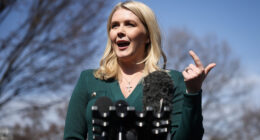Most people would consider running a marathon the pinnacle of fitness – but not Russ Cook. The endurance athlete has just completed a 9,940-mile (16,000km) run along the entire length of Africa.
While Cook told reporters that he was a “little bit tired” and in need of a strawberry daiquiri after completing his odyssey, scientists who spoke to the Guardian suggested the road to recovery could be rockier than he anticipates.
There will be some positive impacts on his health, such as increased cardiorespiratory fitness, more efficient delivery of oxygen to the muscles and better energy efficiency.
But Dr Dan Gordon, an associate professor in cardiorespiratory exercise physiology at Anglia Ruskin University, warned that Cook could also expect an amplified version of what regular marathon runners experience up to 120 hours post-race: extreme tiredness, muscle soreness, joint aches and potential skin sores from sweating and clothes rubbing.
He added that given the heat during Cook’s run, acute kidney issues were likely due to dehydration. Cook’s immune system will also be weakened as although some exercise gives it a boost, too much with insufficient recovery increases the risk of catching colds and flu. “As he recovers, this immune suppression will dissipate, but it is a relatively slow process,” Gordon said.
The best form of recovery will be to stay active, with cycling and swimming, both good lower-impact forms of exercise, as well as stretching his muscles and sports therapy to recover the range of motion in areas not used in running that will have declined to compensate, Gordon said.
Whether such ultra runs are a good idea was primarily a “philosophical question”, he said. “The human machine can do remarkable things and is also incredibly resilient. We know that as long as the pace per day is not excessive, this is achievable.”
He suggested the psychological impact could be most severe, including the comedown from the exhilaration and adrenaline in the first 24-48 hours after finishing the race, and the psychological strain of a lonely experience.
Martin Turner, a sports psychologist at Manchester Metropolitan University, said Cook would benefit from psychological support to help him process the traumatic aspects of the experience, such as being robbed at gunpoint, and to help him set healthy new goals, such as using his expertise to help others.
“Humans have a tendency to hit highs and believe ‘OK, now I’m satisfied,’ but that’s not what humans are like, we’re always looking for the next thing,” he said. “We’re naturally predisposed to setting goals and pursuing them. My question would be: is he looking for something else? Potentially he’ll try to do more and bigger.”
He said the key signs that fixating on exercise goals is becoming a problem were exercising through pain, injury and illness – as was the case for Cook. Indeed, many elite athletes struggle to set realistic exercise goals, he noted, and exhibit emotionally unhealthy behaviours, such as feeling frustrated when they can’t train “because you don’t want to do anything else”.
Cook’s “hardest geezer” moniker could also suggest he may have wrapped his identity and sense of self up too closely with running, which Turner said could create a dependency on training. “It’s OK wanting to do things, ‘I want to push myself, meet these goals’, but when you spill over into ‘I have to do it, I have to succeed’, that’s quite unhealthy pressure. You suffer and sacrifice a lot.”
Dan Lieberman, a Harvard professor and author of Exercised, said that although humans had evolved to run long distances, “we never evolved to run marathons, ultramarathons, or even insanely crazy distances like the length of Africa”.
He said it “always raises concerns” when people pushed the human body way beyond what we evolved to do, though because there are so few examples of this, there is limited data around serious long-term consequences.
One recent research paper looked at the hearts of runners who ran a marathon a day across the UK and only found evidence of damage in two smokers.
Most casual runners need not fear. Lieberman added: “We have a lot of data on how running is a phenomenal form of vigorous physical activity that has lifelong benefits. And the good news is you don’t have to run marathons to get the full benefits.”





